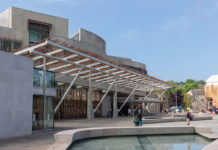Independent research into impact of a tourist tax on sector is required

By Jack Walsh
THE Scottish Tourism Alliance (STA) Council has issued calls for independent research into the impact of a tourist tax on the hospitality industry following repeated attempts from local authorities to gain the necessary powers to introduce such a levy.
The STA Council, which includes representatives from trade groups UK Hospitality, the Scottish Licensed Trade Association and the Scottish Beer & Pub Association, said that while it welcomed the Scottish Government’s recently reaffirmed position – that it will not legislate to grant powers to local authorities to introduce a tourist tax – a “well-informed national, rather than local, debate following conduct of independent research, undertaken by a suitably experienced firm” is now required in order to put the issue to bed once and for all.
Marc Crothall, chief executive of the STA, said any new tax on tourists or the businesses serving them “could ultimately have a potentially devastating long-term impact on Scotland’s tourism industry and local economies”.
He said: “While a tourism tax/visitor levy may work well for tourism businesses, destinations and local authorities in other global destinations where the level of VAT on tourism services is lower than that of the UK, the idea must be examined within the context of: the UK having the second highest VAT rate in Europe, at 20%; the challenges which exist to the imposition of an additional tax; the impact on price-sensitive visitors and the impact on businesses already coping with the ‘perfect storm’ of rising costs that tourism businesses in Scotland currently face.”
He added that while exchange rates “are currently favourable for our international markets, this may not persist beyond the short-term”.
Echoing this view, Willie Macleod, executive director for Scotland at UK Hospitality, told SLTN that while the group remains “stridently opposed” to a tourist tax, the government “needs to take control of this and undertake proper, structured, independent research; look at options, consider impacts, consult with industry and really initiate a structured, informed national debate on this”.























